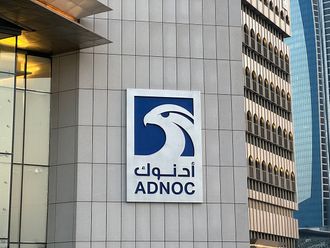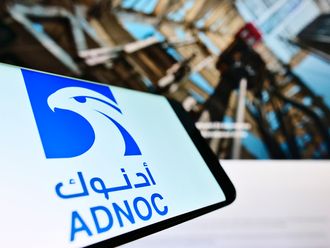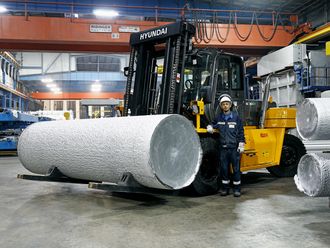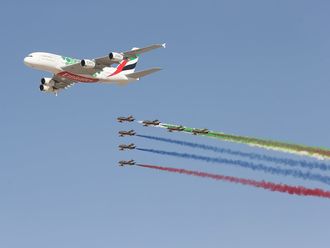ABU DHABI: Adnoc is absorbing, embedding and applying cutting edge technology at every step of the production process from oil platforms to trading platforms, said Dr Sultan Al Jaber, CEO of Adnoc Group, in an interview with the Telegraph.
“In short, as we enter a new age of technology, the world remains reliant on a 160-year-old industry, whose core mission is to responsibly and efficiently stay ahead of tomorrow’s energy demand. At Adnoc, we call this mission “Oil and Gas 4.0.” “Oil and Gas 4.0” means rethinking how our industry adopts and applies technology, connects with non-traditional partners, shows environmental leadership and most importantly attracts and retains talent,” Al Jaber said.
He added that oil and gas will remain essential to the global energy mix and the basis for a wide range of modern consumer products.
He said that as 2.5 billion people move to urban areas, mostly in Asia and Africa, the transition from non-consumer to consumer would drive a growing demand for energy that no single source can meet. Oil and gas will remain essential to the global energy mix and the basis for a wide range of modern consumer products. He said that earlier this year, Adnoc published a survey that showed that a workplace with technological innovation was a more attractive environment to young people. In many countries, oil and gas lacks that association, he said. “In 2019, we are still making breakthroughs, but we are failing to tell our own innovation story in an exciting and compelling way and that should be a priority because the biggest risk to our industry is not competition from other energy sources, but competition for talent.” The fact is, he said. the modern oil company is absorbing, embedding and applying cutting edge technology at every step of the production process. He said Adnoc is rolling out the use of predictive analytics to reduce maintenance costs by up to 20 per cent.
“Our state of the art Panorama digital command centre uses artificial intelligence and big data in order to empower our people to make better, quicker, market driven decisions. We are scaling up the application of carbon, capture, utilisation and storage technology to expand the first and largest CCUS plant in the Middle East Region, significantly reducing carbon emissions. And we are pioneering the use of optical imagery and drone technology to monitor environmental risks, using some 10,000 cameras, many with infra-red capability, across our operations to help build a fuller picture of our fugitive emissions and maintain our zero flaring policy.”












